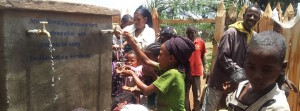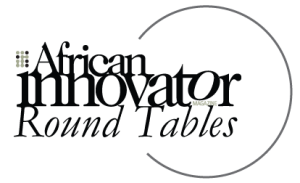The 2016 “Ethio Health Exhibition & Congress” session will be held from 11th – 13th March at the Addis Ababa Millennium Hall. Under patronage Food, Medicine and Healthcare Administration and Control Authority of Ethiopia and support of Ministry of Health and Addis Ababa Health Bureau.
This event will show cases more than 150 brands of products & services from Medical equipments & Pharmaceuticals, Scientific Instruments & in consumables, Hospitals & Specialized Clinics, Wellness & Fitness Centers and Herbal & Cosmetics Industries.
Registration is already starts, please confirm your participation before September 2015 and get 10% discount.
Ethio Health Exhibition and Congress is a grand show of its kind which will have exhibits from leading exhibitors from the sectors of health, wellness and beauty. This show will have exhibits from regional and local Manufacturers, distributors and service providers from fields like Medical technology, Medical consumables and Disposables, Medical services and Publications, Surgical products, Imaging and Diagnostics, Laboratory Equipments and furnitures, Hospital furniture and supplies, Physiotherapy and orthopedics technology, Healthcare Products and services, General and specialized Hospitals, First Aid equipments and emergency service, Pharmaceutical products, Wellness and fitness, Commodity and consumer goods.
10 years anniversary of Ethiopian Green Party

The most anticipated Miss Ethiopia USA Pageant 2016 is in full effect !!! The Miss Ethiopia USA Pageant was found to feature Ethiopian women in the U.S pursue their educational dreams, achieve personal growth, rediscover and take pride in their Ethiopian heritage, as well as help them lay a strong foundation as future leaders of the world. Beautiful Ethiopian women if being crowned as Miss Ethiopia USA and showcasing beautiful Ethiopia is your dream this is an opportunity to make it HAPPEN. Act NOW! International Media, Honored Guests and Live performance are a few that would be part of this phenomenal event.
Contact Nati for vendor opportunities

Join us in celebrating our first year of Ethiopian Diaspora Fellowship and supporting and sending our second cohort of fellows! With the help of our awesome community (YOU!) we sent 5 young Ethiopian-American professionals to Ethiopia for 6-months to lead, serve, and create with partner organizations. Our second cohort will be wrapping up training and head to Ethiopia on July, 17th and we want you to join us and support us in sending them off.
You’ll get dinner, entertainment, a summary of what your support has helped us achieve, an opportunity to continue the momentum, and you will get to meet this years fellows!

Stream of Hope Inc. is an organization founded by a few concerned Ethiopians who live in Dallas, Houston and Oklahoma City. The mission of the organization is to provide clean sanitary water for rural Ethiopian villages.
At the time of its inception, Stream of Hope Inc. teamed up with,, a world-known humanitarian foundation known as A Glimmer of Hope, whose mission among others is provision of clean water to Ethiopian villages.
Background
Causing more than 8.2 million deaths annually cancer is one of the top killer diseases of our time. The estimated number of 14 million plus new cases occurring every year is expected to increase by 70% in the next two decades. With the majority of cancer cases and deaths now occurring in low- and middle-income countries Africa is suffering the heavy burden of this serious public health crisis. A large proportion of cancers in Africa is diagnosed at an advanced stage of the disease where curative treatment is no longer an option. This is due to the lack of screening and early detection services, as well as limited awareness of early signs and symptoms of cancer among the public and health care providers. Fear of Stigma associated with cancer also plays a role in late-stage presentation of the disease in most parts of Africa. Because many African countries lack adequate number of health facilities that can provide specialized treatment and palliative care, cancer patients are faced with long waiting period and considerable treatment costs that are beyond their economic means. With Cervical and cervical and breast cancers being the leading causes of cancer related deaths in Africa the burden of the disease in women is much worse. Gender inequalities, weak economic power of women and absence of screening and early diagnoses services contribute to the increasing number of preventable deaths of women.
The overwhelming demand for cancer treatment and care, the fragile public health system in many African nations coupled with the absences of national cancer control plan and supportive policy and financial frameworks is causing serious social and economic crises that call for an immediate and coordinated action to prevent and control cancer in Africa.
The Stop Cervical Breast and Prostate Cancer in Africa Conference is one response among many to this alarming situation. The conference is an annual event dedicated to contributing to the efforts of ending Cervical Breast & Prostate Cancer in Africa. The 10th SCCA conference will be held 24 – 27 July 2016 in Addis Ababa, Ethiopia. The conference is organized under the patronage of H.E Roman Tesfaye Abneh First Lady of the Federal Democratic Republic of Ethiopia. The organizational work of the conference is undertaken by dedicated inter-ministerial committees in partnership with Princess Nikky Cancer Foundation.

The format of the event is interactive with roundtable discussions and case studies from leading healthcare CIOs, as well as healthcare entrepreneurs and government functionaries, all sharing their experiences on what works and what does not.
Who should attend?
The Ethiopian Christian culture dates back to the emergence of Christianity and continues vibrantly today. This long tradition makes Ethiopia a unique place to visit and study. Our seminar focuses on Ethiopian Christianity and its connections with the Eastern Mediterranean in Antiquity and the Middle Ages. The theme includes the early reception of Christianity in Ethiopia, the emergence of a Christian state, and the development of the distinct Ethiopian Church. We explore the relations between Ethiopia and the Roman Empire, Persia, Egypt and Palestine up to the Crusades, and discuss distinct Ethiopian traditions in connection with Judaism and Islam. We will visit the late antique city of Aksum and the world-famous rock-hewn churches in Lalibela, as well as number of ancient monasteries, participate at a pilgrimage and meet with students and professors at two Ethiopian universities.
The seminar gives an exceptional opportunity to get to know Ethiopian Christianity which is an often neglected field of study in Nordic universities, despite the fact that several important early Jewish and Christian texts are only preserved in Ge’ez, the ancient Ethiopian language. We pay special attention to the diverse cultural manifestations of religion, including archaeology, art history, architecture, music and literature, theology and Church practices, general history, trade and international relations. The participants are invited to study texts in their traditional contexts and as part of the wider material culture.
Our seminar is the second of a number of Nordic PhD-seminars arranged by the Nordic Network for the Study of Judaism, Christianity and Islam in the First Millennium (NNJCI), a network of PhD students and faculty from Nordic academic institutions. For more, see http://nnjci.mf.no/.
Structure of the seminar
The duration of the seminar will be two weeks. The program covers several major sites in Ethiopia. In addition to excursions, there will be lectures given by experts on various topics. Each participant is also required to prepare a short presentation (ca. 20 minutes) on a related topic based on reading of relevant materials (see the list of reading below). The student may present either his/her own PhD project or a paper on a theme connected to the program.
Practical information
Participants: The number of participants is restricted to 12 students (and three teachers). The seminar is for PhD-students, but it will also be open for advanced master’s students and postdoctoral researchers if the available places are not filled by PhD-students.
Cost: The cost for the course is 9.000:- SEK excl. international air fare. This includes all domestic transport, half-board accommodation, all entrances, guide, lectures, materials. Travel to Ethiopia must be with Ethiopian Airlines in order to have substantial reduction in domestic fares. The flights from Stockholm to Addis Abeba should not be more than 5000 SEK if booked early. All participants are themselves responsible for booking the international flights (including their way to Stockholm.)
Reading list: All participants should prepare for the seminar by reading approximately 300 pages. The reading list will be distributed before September 1st.
Credits: The seminar equals 5 ECTS, but participants are themselves responsible for having these credits accepted by their doctoral program.
Organizers: Lund University (Samuel Rubenson, Mengistu Gobezie) and University of Helsinki (Outi Lehtipuu, Anna-Liisa Tolonen, in co-operation with the Finnish Institute in the Middle East).
Information: Follow our facebook-page (https://www.facebook.com/groups/1625904417675426/) or contact Samuel Rubenson (Samuel.Rubenson@teol.lu.se) or Outi Lehtipu (outi.lehtipuu@helsinki.fi).
Application
Applications should be sent to Outi Lehtipu (outi.lehtipuu@helsinki.fi) before April 15th 2016.
Accepted applicants will be informed by May 10th, and be asked to pay a deposit of 4500 SEK by June 1st.
Click here for the application form.
The major goal of this Training of Trainers (ToT) workshop is to create a large pool of experts in the area of gender-responsive economic policy management. This pool of experts will be equipped to act as trainers for the two-week course on gender-responsive economic policy management organized for middle and senior African policymakers and which takes place on an annual basis at IDEP’s headquarters in Dakar, Senegal. Successful applicants may also be considered to be included in IDEP’s roster of gender experts.
The course aims at providing training on agricultural policy with a view to strengthening and/or renewing the knowledge and capacity of African policy makers, including senior managers, negotiators, advisors, planners and analysts, to meet the core challenges of growing the agricultural sector as a central engine of national economic development and social policy. In doing so, the course will expose participants not only to the current state of knowledge and the comparative lessons which are available to Africa, but also some of the best practices that serve as pertinent examples of how an integrated and comprehensive agricultural policy regime has been used to promote economic transformation and social well-being.
The course will serve the policy concerns which most African governments share of, among other things, improving agricultural output and productivity, nurturing the linkages between agriculture and other economic sectors, increasing national food security, combating poverty, expanding employment, promoting environmental sustainability, and enhancing sustainable rural livelihoods, including gender equality. These are concerns that have also been embraced by the African Union, the Regional Economic Communities (RECs), the Economic Commission for Africa (ECA), the African Development Bank (AfDB), and NEPAD.
